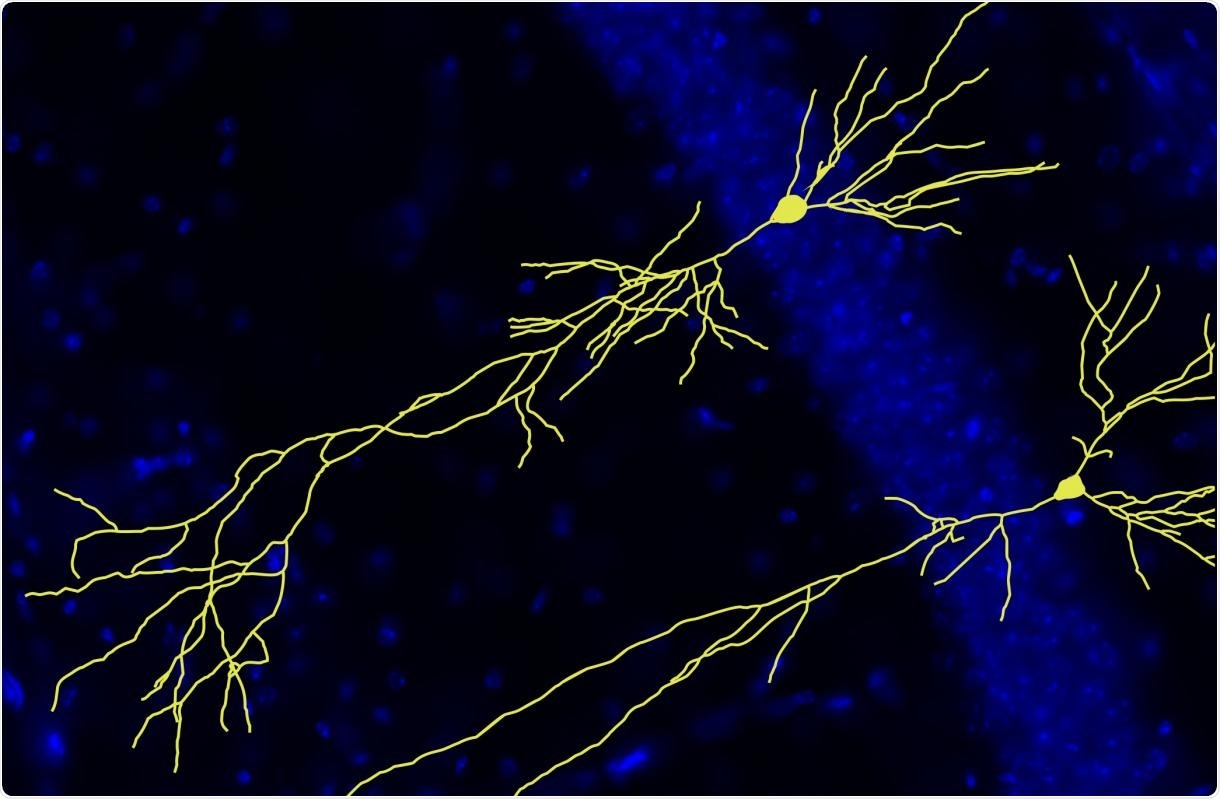The pivotal role played by the APP protein in Alzheimer’s disease is well known. However, how it contributes to healthy brain function, on the other hand, has been mostly unclear to date.

Lack of the APP family leads to abnormal positioning of neurons (yellow) in the hippocampus. Neurons lacking APP family proteins show fewer synaptic connections. © Susanne Klein, Prof. Müller’s research group, Heidelberg University.
An international team of researchers headed by molecular biologist Prof. Dr Ulrike Müller from Heidelberg University recently achieved a new understanding of the physiological functions of the APP protein family with the help of a mouse model that lacks APP.
Previously, it was demonstrated that the lack of APP during brain development leads to the malformation of crucial brain regions involved in learning and memory. As a result, these mice were acutely impaired in their learning abilities and showed autistic-like behavior.
Alzheimer’s disease is induced by the deposit of insoluble protein in the brain, which accumulates around nerve cells and forms plaques. These plaques are mainly formed of small β-amyloid peptides (Aβ)—a cleavage product of the amyloid precursor protein (APP). Aβ peptides cause damage to nerve cells and eventually their death.
The harmful effect of Aβ peptides on neurons has been known for several years, but not much is known about APP’s natural physiological functions. The researchers note that this non-pathological perspective deserves analysis because APP, along with two other closely associated proteins, is generated by a majority of the nerve cells in the brain—specifically in crucial regions for learning and memory formation.
Prof. Müller’s research team analyzed the role of the APP protein family in the development and functionality of the nervous system by using mice as a model organism, which were genetically engineered to inhibit the production of all APP family proteins.
Careful investigation of their brains showed that APP loss during brain development resulted in malformations in the layered structure of the hippocampus—an essential brain region for memory formation.
We observed that the absence of APP led to impaired neuronal wiring and a decrease in the number of synaptic connections. It also greatly reduced communication between nerve cells and severely affected the animal’s performance in behaviour tests that assess learning.”
Ulrike Müller, Head, Department of Functional Genomics, Institute of Pharmacy and Molecular Biotechnology, Heidelberg University
Prof. Müller added that the team was astonished to find that these disruptions in brain development also led to behavioral changes that appeared similar to those that occur in autism spectrum disorder. The mice exhibited the characteristic recurring movement patterns and lack of interest in social interactions with other mice.
Our findings suggest that the APP family plays a crucial role in the normal development of the nervous system, learning, memory formation and social communication. In the future, these understandings may aid the development of novel therapeutics for Alzheimer’s disease.”
Ulrike Müller, Head, Department of Functional Genomics, Institute of Pharmacy and Molecular Biotechnology, Heidelberg University
Source:
Journal reference:
Steubler, V., et al. (2021) Loss of all three APP family members during development impairs synaptic function and plasticity, disrupts learning, and causes an autism-like phenotype. The EMBO Journal. doi.org/10.15252/embj.2020107471.